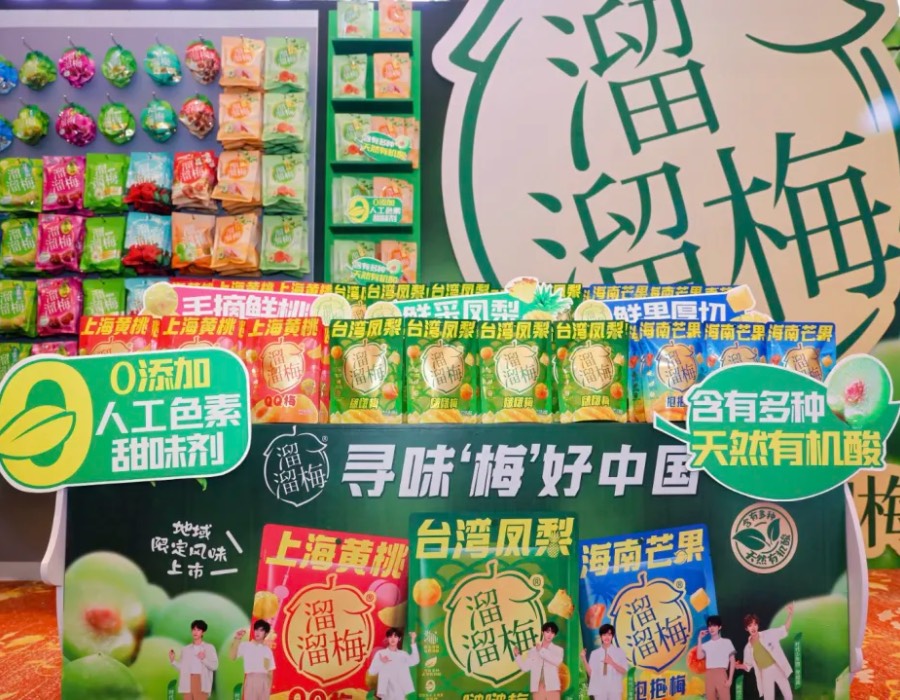Liuliu offers ‘plum’ investment with Hong Kong IPO plan

After ditching its earlier attempt to list on China’s domestic A-share market, the maker of popular plum-based snacks has moved its sights to Hong Kong
Key Takeaways:
- Liuliu has applied to list in Hong Kong, reporting its profit rose nearly 50% to 148 million yuan last year
- HongShan was one of the popular plum-based snack maker’s previous backers, but exited the investment last year
By Lau Chi Hang
Snack foods may cost just pennies each, offering consumers quick fixes of everything from beef jerky to dried peas and spicy peanuts. But those small sums combined can add up to big cash, creating some industry titans. One of those, Liuliu Orchard Group Co. Ltd., whose signature snacks are based on plums, is hoping to raise big bucks by offering investors a piece of one of China’s favorite snacks through its planned listing in Hong Kong.
When Yang Fan of Eastern China’s Anhui province founded Anhui Liuliu in the city of Wuhu in 1999, he could hardly imagine that his small business would one day apply to list on a major international stock market. The company began by initially focusing on pastry products. It planted the seeds of its future success two years later with the launch of its Liuliumei brand in 2001, specializing in its signature plum-based snacks. By 2009, the company was operating factories in some of China’s key plum-producing regions like Anhui and Fujian provinces, ascending to the corporate big leagues.
Celebrity endorsement
One of the company’s major breaks came in 2013 when it enlisted popular actress Yang Mi to peddle its snacks in a TV ad. Her line, “Nothing to do? If that’s you, then just have a Liuliumei,” seemed mundane on the surface. But the gods smiled on Yang Fan and repeated airings etched the slogan into public consciousness, making Liuliumei synonymous with fruit- and plum-based snacks. The rest is history.
According to third-party market data in the listing document filed earlier this month, Liuliu was China’s top-ranked maker of fruit-based snacks and plum-based products by retail sales in 2024, with 4.9% and 7% of those markets, respectively. The company’s distribution network covers 34 provinces and cities across China with 1,396 distributors.
Liuliu’s revenue and profits also continue to grow at a healthy rate. From 2022 to 2024, the company’s revenue rose from 1.17 billion yuan ($160 million) in 2022 to 1.62 billion yuan last year. Its profit more than doubled from 68.4 million yuan to 148 million yuan over that time, including 48.9% growth last year.
Liuliu is all about plums these days. Its products fall into three major categories, namely dried plum snacks, plum jelly, and snacks based on Western-style plums, which are larger and sweeter than traditional Chinese plums. Dried-plum snacks are its biggest money spinner, contributing 970 million yuan last year, or 60% of its revenue. Plum jelly snacks, which have grown rapidly in recent years, accounted for 25.4% of the total, while Western-style plum-based snacks accounted for 13.8%.
Major investor exit
Despite Liuliu’s positive story, some may still worry about the company’s overreliance on plum products, which exposes it to raw material price volatility. The reality is that such snacks are losing their profitability, which is reflected in Liuliu’s gross margin that fell from 39.6% in 2022 to 37.7% in 2023, and tumbled to 32.1% last year. While Liuliu’s profits have generally grown, that probably owes to selling more snacks and income from other sources rather than banking on its improving margins.
Liuliu’s path to listing has also been rocky. It originally planned to list on China’s domestic A-share market, applying to the Shenzhen Stock Exchange in June 2019. But it withdrew that application in December the same year. It didn’t say why it changed course, but added its application wasn’t returned or rejected by the Chinese securities regulator and it didn’t encounter any major difficulties or legal obstacles. Perhaps that’s true, though investors will inevitably wonder why exactly it abandoned the plan.
The withdrawal of a major investor may also leave some wondering about the company. As early as 2015, the Beijing arm of HongShan, formerly known as Sequoia China, thought it had a winner in this plum industry giant, investing 135 million yuan for 15% of Liuliu’s shares. But Liuliu bought out that stake last June, without providing an explanation.
The loss of such a heavyweight investor raised some eyebrows, since HongShan is known for its winning bets. Why pull out of its investment so close to the company’s listing?
To facilitate the buyout, Liuliu sought support from two sources tied to the government in its hometown of Wuhu, receiving 40 million yuan and 35 million yuan from the Huaan Fund and the Xingnong Fund, respectively. That has led some to suggest the company needed to lean on its hometown government for support, which it then received.
Sinking cash flow
Despite its successive years of profit growth, Liuliu’s operating cash flow has dropped steadily from 200 million yuan in 2022 to 127 million yuan in 2023 and just 84.4 million yuan in 2024. Its inventory has moved in the opposite direction over that time, growing from 360 million yuan in 2022 to 426 million yuan in 2023, and jumping to 520 million yuan last year. Its trade receivables also increased over the period, doubling from 78.54 million yuan in 2022 to 160 million yuan last year.
Liuliu lacks many listed peers for valuation comparison. One possible candidate, Weilong (9985.HK), known for its spicy snacks, trades at a price-to-earnings (P/E) ratio of 33 times, though it’s about four times larger than Liuliu with more than 6 billion yuan in revenue last year. Snack retailer Best Mart 360 (2360.HK) trades at a lowly P/E ratio of just 6 times, even though its revenue and profit were larger than Liuliu’s last year. Liuliu’s smaller scale may mean it has to settle for a similarly low valuation – especially if investors start questioning the company about worrisome signs like its falling margins, rising inventory and shrinking cash flow.
To subscribe to Bamboo Works weekly free newsletter, click here





